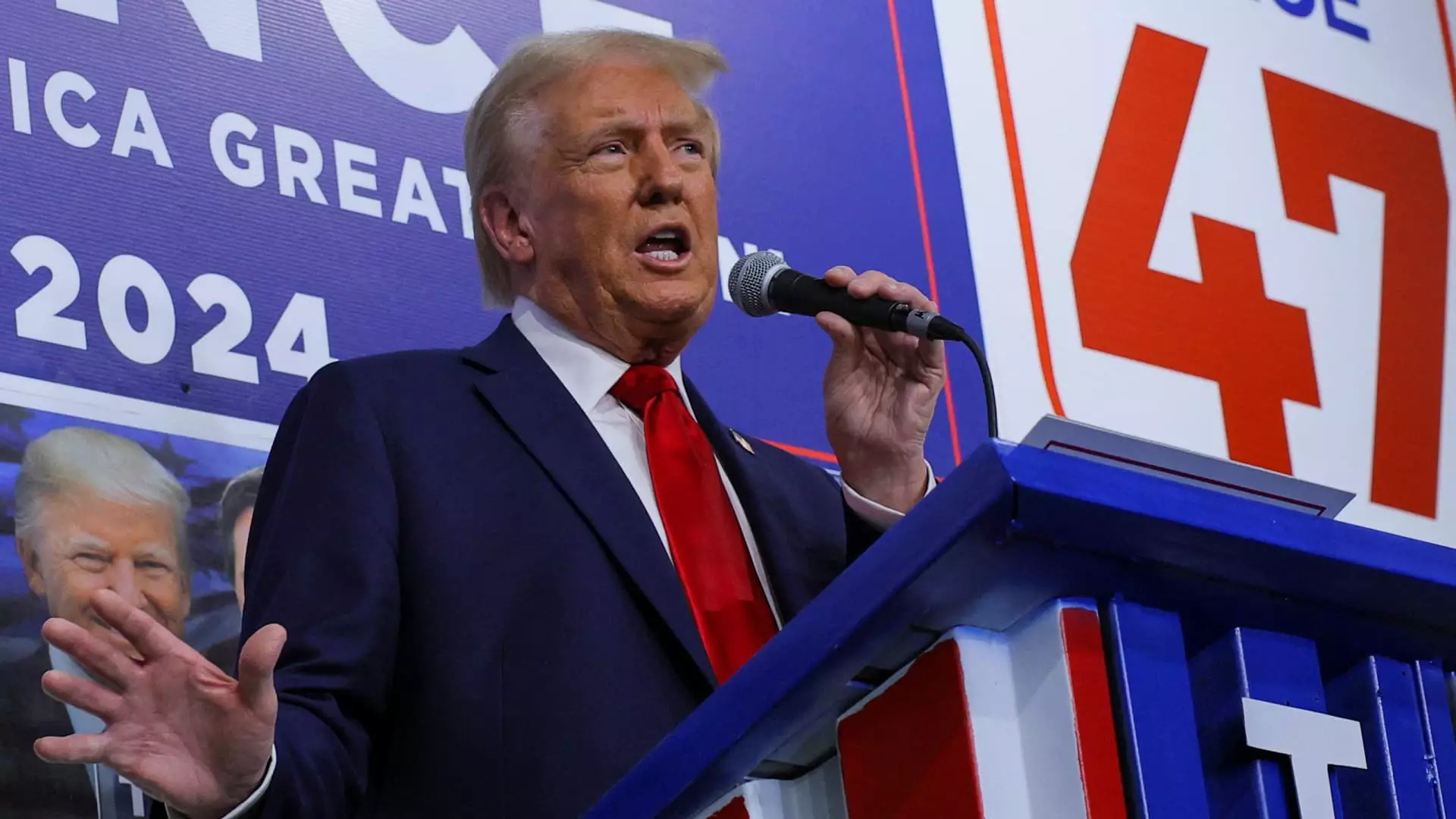The political landscape is frequently shaped by economic proposals that resonate—or don’t—with the electorate. A recent NBC News poll indicates a notable shift in voter sentiment towards universal tariffs, particularly as championed by former President Donald Trump. This analysis delves into the nuances of the polling data, the implications of tariffs on the economy, and the broader political ramifications of this pivotal campaign issue.
According to the NBC News poll conducted from October 4 to October 8, a significant portion of American voters exhibits skepticism towards universal tariffs. With 44% of respondents indicating they would be less likely to support a candidate advocating for tariffs as high as 20% on imports, the sentiment reveals a potential hurdle for Trump’s campaign. Conversely, only 35% of participants expressed a greater inclination to support such proposals, with 19% remaining indifferent. These statistics illuminate a growing trepidation among voters regarding economic policies that could exacerbate financial burdens.
This hesitance towards universal tariff proposals points to a deeper concern about economic stability and consumer pricing. The notion that tariffs could lead to higher costs for goods is particularly salient in the current climate of rising inflation. Voters may be connecting the dots between tariffs and their personal financial situations, indicating that policies perceived as protectionist could be politically detrimental.
In his discussions surrounding universal tariffs, Trump adopts a vigorous stance, arguing that high tariffs are a means to incentivize domestic production. His belief hinges on the notion that if tariffs are high enough, companies will relocate operations to the United States to avoid steep costs associated with importing goods. This approach attempts to frame tariffs not merely as punitive measures but as strategic economic tools aimed at revitalizing American manufacturing and creating jobs.
However, critics argue that this reasoning overlooks the intricacies of global trade dynamics. Economists contend that the burden of tariffs primarily falls on U.S. importers, who are likely to pass on these increased costs to consumers—ultimately counteracting any perceived benefits of onshoring production. In a time when inflationary pressures already impact household budgets, such strategies risk exacerbating financial strain on average Americans.
The implications of implementing universal tariffs extend beyond voter sentiment; they may also trigger significant economic repercussions. Critics within the GOP, including Senate Minority Leader Mitch McConnell, have expressed that tariffs inherently lead to price increases for consumers. This reflection reveals a split within the party, highlighting the contention between traditional Republican free-market principles and a shift towards protectionist policies.
Moreover, the concern that heightened tariffs could reignite inflation is pressing. If costs on imported goods rise, consumers might curtail spending, thus slowing economic recovery. With inflation recently showing signs of moderation, introducing policies that could potentially reverse this trend might seem counterproductive to many voters seeking economic stability.
Vice President Kamala Harris has adeptly seized upon Trump’s universal tariff proposals, branding it as a “Trump sales tax.” This rhetoric poses a dual challenge: it not only positions her and the Biden administration as advocates for consumers, but it also invites a discussion about the broader economic strategies employed by the Trump campaign. The Biden administration’s own trade policies illustrate an effort to differentiate its approach from Trump’s, arguing for a more selective and targeted tariff strategy, particularly concerning Chinese goods.
Treasury Secretary Janet Yellen has emphasized the careful and strategic nature of current tariffs, asserting that they focus on sectors deemed vital to national economic interests. This nuanced position may resonate more favorably with voters who are wary of the sweeping implications of universal tariffs.
As the political arena evolves leading up to the next elections, the voter response to universal tariffs encapsulates a critical moment for economic policy discourse. While Trump remains steadfast in promoting his tariff-centric vision, the data reflects a poignant reality: an electorate increasingly wary of policies that could spike consumer costs. Both the Democratic and Republican parties must navigate these sentiments carefully, as they spotlight foundational economic philosophies and the enduring implications of trade policies on the average American.

Leave a Reply